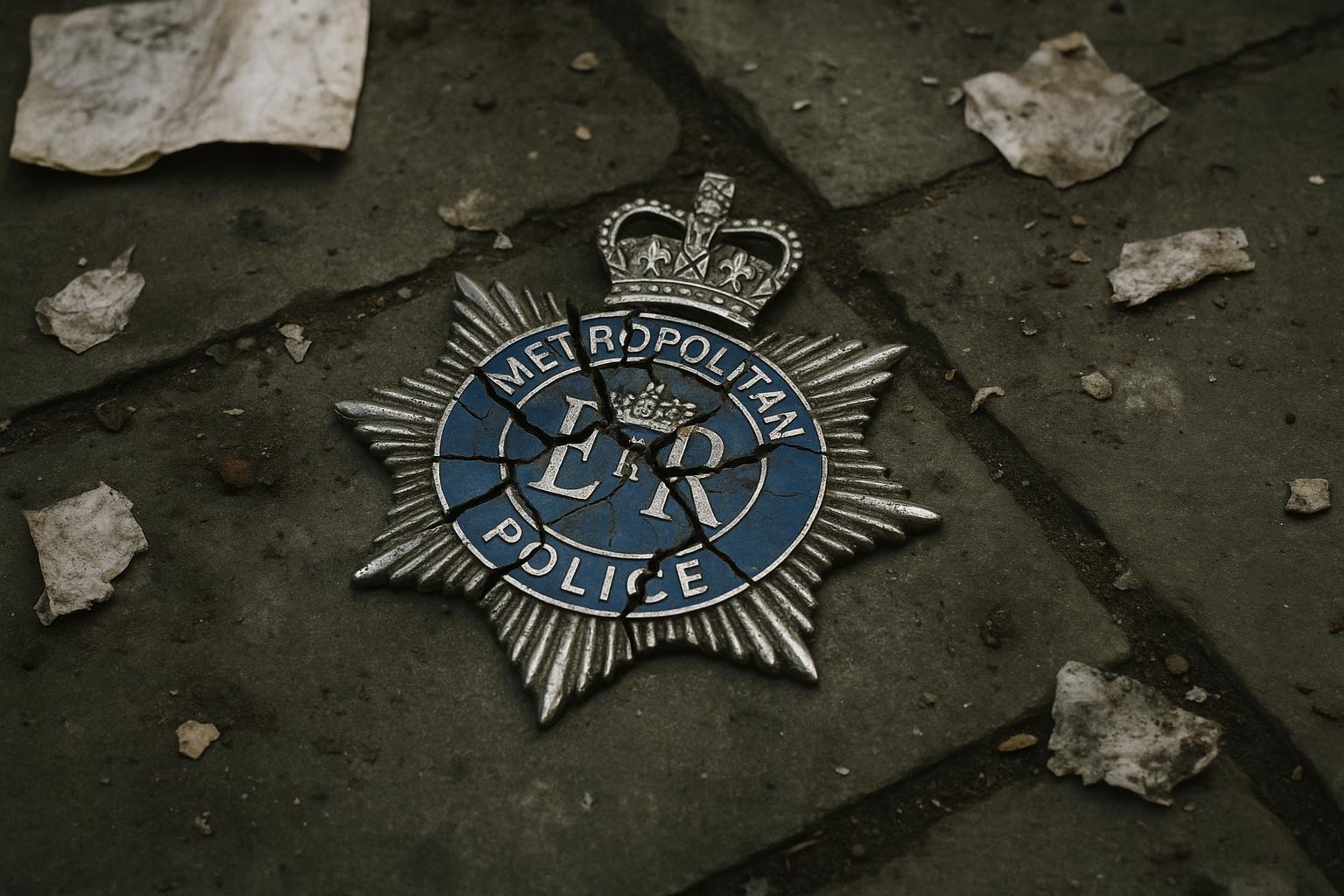The Metropolitan Police has been plunged into a severe crisis following a BBC Panorama investigation exposing deeply troubling allegations of bigotry, misogyny, and excessive use of force within its ranks. The undercover footage, filmed at Charing Cross police station, revealed officers making anti-Muslim comments, displaying sexist attitudes, and boasting about excessive force. These revelations have intensified fears at the highest levels of the Met, City Hall, and national government about the erosion of public confidence in the force and doubts over its capacity for meaningful reform.
Sir Mark Rowley, the Met commissioner since September 2022, acknowledged the force’s “toxic legacy” of prejudice and systemic cultural failings that have entrenched misogyny, racism, and a damaging lack of public service ethos. While he rejected the specific label of institutional racism, he accepted the broader findings of wholesale failings from Lady Louise Casey’s 2023 review, which described the Met as institutionally racist and misogynistic. Rowley apologised for the conduct shown in the documentary, describing the behaviour as “reprehensible and completely unacceptable” and vowed to investigate and dismantle “corrupt networks and cliques” operating beneath the surface. He emphasised that officers responsible for racism, misogyny, or illegal conduct would face swift disciplinary hearings and likely dismissal.
Since taking office, Rowley has overseen a dramatic purge, with 1,500 officers removed for falling below standards, equivalent to about 11 dismissals per week—over three times the previous rate. Currently, nine officers from Charing Cross have been suspended following these latest allegations, and the Independent Office for Police Conduct (IOPC) is investigating 11 current or former officers plus one staff member over behaviour occurring between August 2024 and January 2025. The misconduct includes excessive force, discriminatory and misogynistic remarks, and failure to report or challenge wrongdoing. Some officers involved range from constable to sergeant, and the IOPC has also pursued allegations involving a former Met officer who has since transferred elsewhere. The force has taken further steps by removing two officers from frontline duties and launching a “reset” of the custody team’s leadership at Charing Cross, aiming to root out systemic failings and rebuild confidence.
Assistant Commissioner Matt Twist described the conduct as “disgraceful” and outlined how investigations began promptly upon receiving information in early September 2025. The Met welcomed the IOPC’s decision to lead an independent inquiry and is scrutinising leadership and culture within teams to ensure accountability and prevent further misconduct. Twist noted that whistleblowing among officers has increased threefold in recent years, contributing to a significant rise in dismissals, which signals a more assertive approach to rooting out deviance.
The crisis has prompted sharp criticism from various quarters. Sal Naseem, former IOPC London director during an earlier scandal at Charing Cross, questioned how such issues could reoccur and cautioned that leadership and sustained implementation—not merely reports or recommendations—are crucial to reform. Imran Khan, solicitor for Doreen Lawrence whose son Stephen was murdered in a racially motivated attack, went further, stating the police service is “as bad as it ever was” and called for Commissioner Rowley’s resignation if decisive action is not taken. He also indicated plans for a follow-up to the Casey review to assess progress.
The National Black Police Association’s (NBPA) president Andy George lamented Rowley’s handling of racial and behavioural issues, arguing that black officers had been sidelined rather than listened to, and even suggested the Met might need to be broken up to tackle ingrained problems. Within the Met, tensions surfaced when Deputy Commissioner Matt Jukes faced jeers at an NBPA conference after refusing to concede that the Met is institutionally racist, despite acknowledging “gangsterish behaviours” and cover-ups within the force. Jukes, considered a frontrunner for the next commissioner, expressed “profound shame and regret” about the behaviours revealed.
London Mayor Sadiq Khan, responding to the scandal, committed to announcing the long-overdue follow-up inquiry advocated by Lady Casey to evaluate the force’s progress since her 2023 report. Meanwhile, Alison Lowe, West Yorkshire’s deputy police and crime commissioner, cautioned that the fallout could be national, with public perception of Charing Cross potentially tainting views across the country.
This latest scandal echoes earlier problems at Charing Cross that led to the resignation of Commissioner Cressida Dick in 2022 following a previous IOPC report, highlighting the persistent challenges the Met faces in eradicating entrenched misconduct and prejudiced attitudes. The BBC Panorama documentary’s findings, along with ongoing IOPC investigations and strong internal responses, underscore the scale of the crisis and the immense challenges ahead for the Metropolitan Police in restoring public trust and transforming its culture.
📌 Reference Map:
- Paragraph 1 – [1], [7]
- Paragraph 2 – [1], [7]
- Paragraph 3 – [2], [3], [4]
- Paragraph 4 – [5], [2], [4]
- Paragraph 5 – [1], [5]
- Paragraph 6 – [1]
- Paragraph 7 – [1]
- Paragraph 8 – [1], [5]
- Paragraph 9 – [1], [2], [3], [6]
Source: Noah Wire Services
